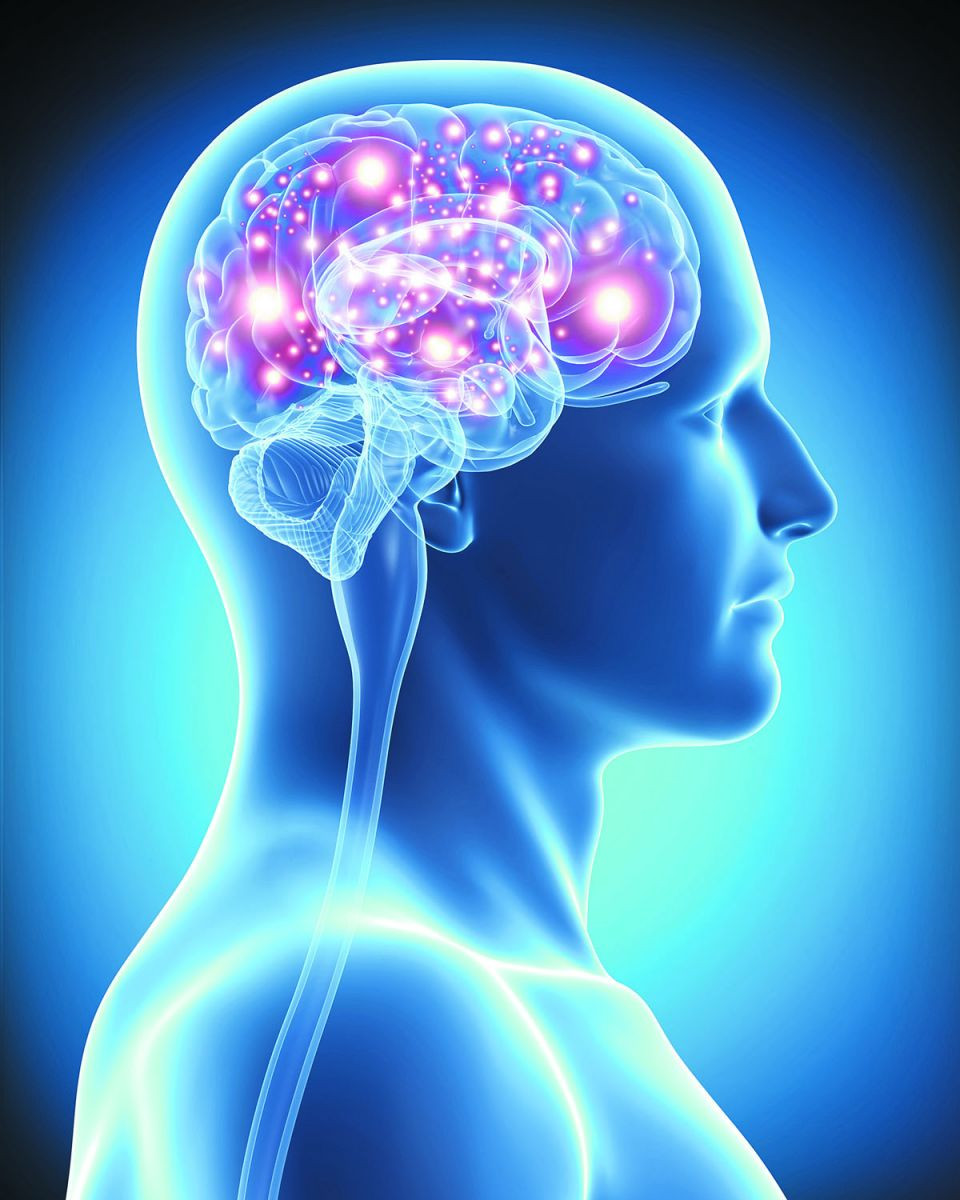
Daily cup of coffee may prevent afib recurrence

Gene-editing therapy lowers harmful blood fats in early study

What is EMDR therapy, and who can it help?

GLP-1 drugs versus bariatric surgery for treating obesity

Trying to lose weight? Be careful not to lose muscle

Two dumbbells, three exercises, and 10 minutes

Easing the emotional burden of IBS

Modify your push-ups to meet your fitness level

What is long QT syndrome?

Stroke survivors may benefit from very low LDL levels
Alzheimer's Disease Archive
Articles
A silent heart threat may actually be endangering your brain
Want to keep your mind sharp? Be aggressive about treating your high blood pressure.
Image: © adrian825/Thinkstock
If you're like a lot of people, you probably think of your heart when you think about blood pressure. But you should also think about your mind.
"High blood pressure is not just a disease or condition. It's actually a risk factor. It's a risk factor for heart disease and stroke, and it's a risk factor for cognitive decline and dementia," says Dr. Natalia Rost, a stroke neurologist at Massachusetts General Hospital and associate professor of neurology at Harvard Medical School.
Alzheimer’s wake-up call
Can getting quality sleep help prevent the disease?
Image: © Monkey Business Images/Thinkstock
A good night's sleep does more than rejuvenate you for the next day. It may help protect you against Alzheimer's disease. Research has begun to show an association between poor sleep and a higher risk of accumulating beta-amyloid protein plaque in the brain, one of the hallmarks of the disease.
"Observational studies have found that adults over age 65 with amyloid plaques in their brain have reduced slow-wave sleep, which is thought to play an important role in memory function, even though these people do not yet show signs of Alzheimer's, like memory loss and cognitive decline," says Dr. Brad Dickerson, associate professor of neurology at Harvard Medical School. "It may be that quality sleep could play a role in who may get Alzheimer's."
Better habits, better brain health
Exercising, maintaining good health, socializing, and learning new information may help keep you sharper, longer.
Everyone wants to live an active, vibrant life for as long as possible. And that goal depends on robust brain health. While we don't have a guaranteed way to prevent dementia, we do have increasing evidence that engaging in healthy lifestyle habits may help.
For example, a 2015 randomized controlled trial from Finland suggested that older adults with a number of healthy habits — such as eating a healthy diet, exercising regularly, and socializing — improved or maintained thinking skills and reduced the risk of cognitive decline.
Moderate drinking linked to decline in thinking skills
News briefs
Image: © Andy Dean/Thinkstock
Many studies have suggested that drinking alcohol in moderation — one drink per day for women, one or two drinks per day for men — may offer some protection against heart disease. But a study published June 6, 2017, in The BMJ suggests that moderate alcohol drinking may not protect the brain. Researchers studied over 500 men and women, average age 43, who reported the number and size of alcoholic drinks they had each day. Participants underwent tests of their thinking skills periodically and had MRI scans of their brains at the end of the study. A typical drink was considered to be a 12-ounce beer or a 5-ounce glass of wine. The results after 30 years: drinking just over seven typical drinks or less each week did not appear to either hurt or protect brain health. But drinking eight drinks or more per week was associated with shrinkage in the hippocampus (important to memory) and deterioration of white matter (part of the brain's internal wiring), both of which are associated with decline in thinking skills. The study was observational and did not prove that drinking alcohol caused mental decline. The jury is still out, but this study suggests that it would be wise to avoid averaging more than one alcoholic drink per day.
Midlife depression probably not a risk factor for dementia
In the journals
A study published online May 17, 2017, by JAMA Psychiatry found that while depression symptoms later in life were associated with dementia, having symptoms in midlife was not. The findings indicate that depression may not be a risk factor for dementia as previously thought, according to the researchers. In the study, about 10,000 people (two-thirds of them men), ages 35 to 55, were recruited and followed for 28 years. Those who reported chronic or recurring depression symptoms at the study's beginning did not show a significant increased risk of developing dementia by the study's end. However, those who reported depression symptoms within the final 11 years of the study were twice as likely to be diagnosed with dementia.
The researchers said that if depression symptoms were a true risk factor for dementia, there would be an association with people who had symptoms earlier in life and not just later. They concluded that depression later in life instead might be an early sign of dementia.
Can drinking tea prevent dementia?
In the journals
Image: © jimfeng/Thinkstock
A study in the December 2016 Journal of Nutrition, Health & Aging showed that drinking tea frequently is associated with a lower risk of dementia, especially for people who are genetically predisposed to the disease.
Researchers followed 957 older adults, average age 65, who were part of the Singapore Longitudinal Aging Study. Of these, 69% drank tea on a frequent basis. After a five-year period, the researchers found that the tea drinkers had a 50% lower risk of dementia. This is consistent with earlier findings that showed tea consumers scored higher on various cognitive tests.
The healing power of art
Creative activities can relieve stress, aid communication, and help arrest cognitive decline.
Image: © Katherine A. Gallagher Integrative Therapies Art Therapy Program at the Mass. General Cancer Center
The title of a recent documentary film, I Remember Better When I Paint, sums up the findings of a growing body of research into the cognitive effects of making art. The movie demonstrates how drawing and painting stimulated memories in people with dementia and enabled them to reconnect with the world. People with dementia aren't the only beneficiaries. Studies have shown that expressing themselves through art can help people with depression, anxiety, or cancer, too. And doing so has been linked to improved memory, reasoning, and resilience in healthy older people.
Looking for early signs of Alzheimer’s
By the time memory loss shows up, the disease is well under way. Researchers are finding ways that may reveal brain changes sooner.
For a long time, memory loss was seen as the telltale sign of Alzheimer's disease. While this is certainly the most common symptom, it may not be the best way to identify the disease in its early stages.
"A major problem of Alzheimer's diagnosis, and ultimately effective treatment, is that by the time the first clinical symptoms appear, irreversible damage to the brain has already occurred," says Dr. Seth Gale, a neurologist with Harvard-affiliated Brigham and Women's Hospital. "It is now believed that Alzheimer's-related changes begin in the brain at least a decade before any symptoms emerge."
Vitamin E and selenium may not lower risk of dementia
In the journals
Much research has shown that oxidative stress plays a key role in the development of neurodegenerative disorders, such as Alzheimer's and Parkinson's disease. As a result, antioxidant supplements like vitamin E and selenium have been proposed to prevent dementia. Yet a new study on older men published online March 20, 2017, by JAMA Neurology found no evidence they can help.
The Prevention of Alzheimer's Disease by Vitamin E and Selenium clinical trial included 7,540 men, average age of 67. Over a five-year period, the men were randomly assigned to receive 400 international units of vitamin E each day, 200 micrograms of selenium, both supplements, or a placebo. The supplements were stopped and 3,786 of these men agreed to be followed for an additional six years. They were routinely screened for cognitive problems and encouraged to see their doctor if the results suggested any kind of cognitive impairment.
Short-term estrogen use doesn’t protect against dementia, study indicates
Research we're watching
Although hormone therapy was once thought to help preserve cognitive function after menopause, there is mounting evidence to the contrary, including a recent report from the Kuopio Osteoporosis Risk Factor and Prevention Study.
Researchers in that project sent questionnaires to all women ages 47 to 56 who lived in the Finnish province of Kuopio in 1987. The women completed questionnaires every five years, providing information about their lifestyles, medication use, and illnesses. The researchers checked the information in the questionnaires against prescription registries and medical records up to 2009.

Daily cup of coffee may prevent afib recurrence

Gene-editing therapy lowers harmful blood fats in early study

What is EMDR therapy, and who can it help?

GLP-1 drugs versus bariatric surgery for treating obesity

Trying to lose weight? Be careful not to lose muscle

Two dumbbells, three exercises, and 10 minutes

Easing the emotional burden of IBS

Modify your push-ups to meet your fitness level

What is long QT syndrome?

Stroke survivors may benefit from very low LDL levels
Free Healthbeat Signup
Get the latest in health news delivered to your inbox!
Sign Up









